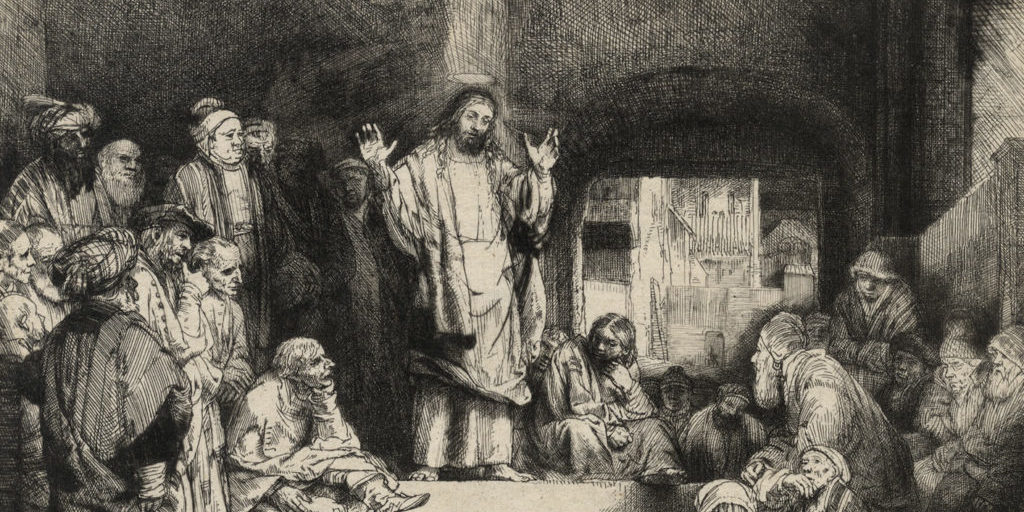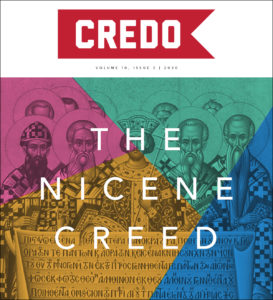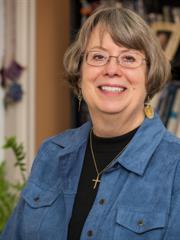
“We Believe in One God”
 The new issue of Credo Magazine focuses on the Nicene Creed. The following is an excerpt from one of the issue’s featured articles with Katherin Rogers. Katherin A. Rogers is a Professor of Philosophy at the University of Delaware. She is the author of Perfect Being Theology (Edinburgh University Press, 2000) and has contributed articles to numerous prestigious journals like Faith and Philosophy, International Philosophical Quarterly, and Religious Studies.
The new issue of Credo Magazine focuses on the Nicene Creed. The following is an excerpt from one of the issue’s featured articles with Katherin Rogers. Katherin A. Rogers is a Professor of Philosophy at the University of Delaware. She is the author of Perfect Being Theology (Edinburgh University Press, 2000) and has contributed articles to numerous prestigious journals like Faith and Philosophy, International Philosophical Quarterly, and Religious Studies.
Christianity is a philosophically difficult religion. Not only are we asked to believe that God has taken on a human nature such that one Person is both God and man, but we are also to believe that God is three Persons in one substance. We must avoid polytheism – there is only one God, not three. And that one God is the same one and unique God Who, the first commandment tells us, alone is to be worshipped. A difficult doctrine indeed. You might just throw up your hands and cry, “It’s a mystery!” And probably everyone who has encountered these doctrines does, and should, allow that the human mind is not going to plumb the depths of the divine being. But, as St. Augustine points out, you cannot love what you do not know. And we are commanded to love God. How, then, can we approach the unity of the triune God?
Many of the great theologians and philosophers who meditated on what the “oneness” of God might mean, thinkers like St. Augustine and St. Anselm and St. Thomas Aquinas, took the oneness of God so seriously that they subscribed to the Doctrine of Divine Simplicity (DDS) – a view standard among Christian philosophers throughout the Middle Ages, but subject to lively debate among philosophers of religion today. The DDS holds that God is absolutely simple. He is not composed of any parts at all. All of His attributes – for example His omnipotence, omniscience, and perfect goodness – are ultimately the same and identical to His divine nature. All of His activities and knowledge are ultimately the same and identical to His divine nature. And that entails that God is immutable. It cannot be the case that there is God in his perfect nature, but then, as something added on and changing, his activities and knowledge. Difficulties piled on top of difficulties! Yet, at least according to St. Augustine, St. Anselm, and St. Thomas Aquinas, there is powerful reason to accept the DDS and human knowers can have some grasp of the simple nature of God.
Before offering the briefest sketch of why one might want to accept the DDS and how one might try to make some sense of it, three preliminary remarks are in order. The first has to do with philosophy in general. Anyone who has studied philosophy knows that a big part of the job is to take something ordinary, something everybody is familiar with and encounters in everyday life, and then to think hard about it. And as soon as you start to think hard about anything it ceases to be ordinary and gets bizarre very fast. St. Augustine in his ground-breaking meditation on time in his Confessions 11 says that as long as you don’t ask him what time is he thinks he knows, but when you ask him to explain what it is he finds that time is deeply puzzling. And the same goes for the other issues that philosophers find interesting. All of his attributes – for example His omnipotence, omniscience, and perfect goodness – are ultimately the same and identical to his divine nature. Click To Tweet
Some Preliminary Remarks
One such issue, relevant to the present discussion, is the issue of “mereology”: What does it mean for something to be a part or a whole? How do we determine what counts as a single, discreet, unified object? But we all deal successfully with parts and wholes and unified objects every day, don’t we, so how hard can those questions be? Well, a glance at contemporary mereology proves that they are very hard indeed. Some philosophers hold that there are no unique objects, some that only a living thing can be a unique object, and some that any assortment of things – your laptop, the moons of Jupiter, and the Taj Mahal all combined – is a unique object. And those are just a few of the long list of theories. It is true that common sense – the vague, unexamined assumptions we operate with as we go about our daily business – finds the Trinity and the DDS hard to accept. But upon closer consideration, there is no philosophical consensus on parts and wholes and objects even regarding the things we find around us every day, so the threeness and oneness of the Trinity and the DDS are not unique in being difficult to grasp.
The next preliminary point is that God is the absolute source of all. Of course. Who doesn’t say that? But what that means is that He transcends the limitations of his creation. He is not to be categorized by the categories of nature. He is not like a human being only much larger and smarter and more powerful. Were one to insist that no claim regarding God should be accepted unless we – little human beings – can imagine how it works, make a picture of it in our minds, we would be circumscribing God and envisioning a diminutive divinity. But we do not want to fall into the opposite error and propose that God cannot be spoken of or thought of meaningfully. As the source of all God has created a vast and grand mirror of His nature in which we can observe, as innumerable reflected sparks, the wonder of his being. Humans especially are made in the image of God, and in considering our own natures we can get a glimpse of the simple Trinity.
The last preliminary is this: In the words of St. Anselm, “God is that than which no greater can be conceived” (Proslogion 2 – Which is not to say that we can “comprehend”, wrap our minds around, God). Too obvious! If you and I, suffering the radical cognitive limitations that are inevitable in a human life, were able to think about a better, a more impressive, a more worthy of worship being than some being X, then surely X is not God. But it is this non-negotiable claim that produces the DDS.
**Read the remainder of Katherin A. Rogers’s article in the latest issue of Credo Magazine.

